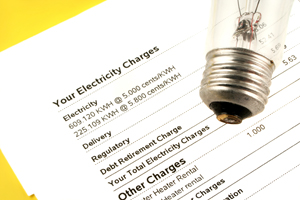
Methods for paying bills
Paying bills can be complicated, not just to save for but also to pay. For regular bills such as electricity, there is normally a choice of how to pay, listed below:
Direct Debit:
On a regular basis, the company you are paying is allowed to withdraw the money from your account, which helps to break the cost up over the year. You can often receive discounts when using this method as companies know it will be paid on time.
Internet banking:
You can usually pay online with companies providing their bank details. In order to make sure the company knows where the money came from, you must include your reference number.
Phone:
Using your credit or debit card, you can ring your company and pay bills over the phone. You should be wary of numbers which charge high rates though.
Post:
Most companies still allow the sending of a cheque to the company’s address for the bill amount. It should be noted however that processing the cheque and transferring your money can take up to five days.
Post Office:
The Post Office often allows you to pay bills (by either cash or card), but they sometimes charge you for this service.
Prepayment meter:
This method concerns electricity and gas, which can be prepaid. It works by purchasing ‘top-ups’ on a card/key which you then insert into the meter. If you do not have enough credit on the meter then you will not have a supply of energy. This method of paying can be very expensive, but you can budget for what you are using.

